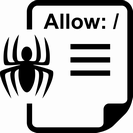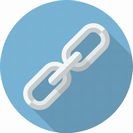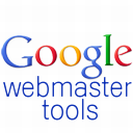What is Robots.txt?
A robots.txt file tells search engine crawlers, or “robots,” what parts of the website they can evaluate when ranking a website. This file is very useful for website owners, since it can prevent crawlers from indexing content that negatively affects search engine ranking, such as duplicate pages or certain scripts. This brief guide will cover the basics of search engine crawlers and robots.txt files, and how search engines use the two to rank websites.
How “robots” view a website
Also known as “robots,” search engine crawlers regularly scan websites for factors that affect search engine ranking. While these factors are always changing, most websites have essential components that could harm their rank if seen by a crawler. For example, with content quality being a major ranking factor in search engine optimization (SEO), websites with duplicate content often receive a lower search engine ranking. However, not all duplicate content is bad: some websites need duplicate content in order to run certain variants of their website, such as a printable version of the page. With this in mind, it’s easy to see why website owners might want a crawler to ignore certain parts of their website.
Robots.txt and search engine crawlers
At a basic level, most crawlers tend to avoid any page with a robots metatag. However, these can be unreliable since many search engines will ignore metadata when indexing. As a result, websites should use a robots.txt file to send crawlers in the right direction.
With the robots.txt file, website owners can choose which parts of their websites crawlers can index. From the robot’s perspective, a robots.txt file – with the right formatting – is essentially a “do not disturb” sign for certain areas of the website. Of course, this only stops search engine crawlers; anyone and anything else can still access “off-limits” pages, and robots.txt files should not be used as a security measure.
Creating and formatting a robots.txt file
Thankfully, making a robots.txt file is a relatively simple process. For first-time website owners, the coding process may seem daunting, but it’s very easy with the help of a number of tools. For the sake of understanding robots.txt files, however, it’s important to take a moment to know how the file tells robots what they cannot index.
Robots.txt files have two variables: “User-agent¬” and "¬disallow,” which refer to a search engine crawler and one or several directories of a website, respectively. In the example below, the robots.txt file blocks all crawlers, regardless of search engine, from indexing pages under the “example” directory. In this example, bear in mind that the input “*” refers to “all.”
User-agent: *
Directory: /example/
This is a relatively simple example, however, it is possible to specify more variables. Other variables may include the type of search engine crawler (for example, “GoogleBot” refers to Google’s search engine crawlers) and a specific selection of directories. However, robots.txt files are likely to develop errors as they become increasingly complicated.
Creating a robots.txt file is as simple as opening up a basic text editor such as Notepad on computers running a Windows operating system. There are also a number of tools available online that can check for errors in robots.txt files, ensuring that everything goes according to plan and crawlers only index the right parts of the website.
What is Google’s Keyword Tool and how do you use it?
Google’s Keyword Tool is a free tool at the disposal of Adwords users that shows demand. The tool is also useful for individuals who do not use Adwords.
If you are interested in achieving good rankings and more visitors for your website through Search Engine Optimization (SEO), Google Keyword tool can help you in two main ways, namely:
- Provide you with keyword ideas
- Give estimates of the monthly search volumes for the keywords you would like to use.
Since keyword selection is an integral stage in the SEO process, it is critical that you understand what they are. For SEO purposes, keywords and keyword phrases are interchangeably used. A keyword can be a single word, or it may be a phrase or combination of 2 or more words.
Also, crucial in the SEO process is learning how to use this tool effectively. However, before looking at how to use it, it is vital to understand where Google keyword tool is today.
What about Google Keyword Tool?
Today, Google Adwords keyword tool is now known as the Google keyword planner. The old system was overhauled by Google to accommodate the changing web space. In the new keyword planner, the focus is on maximizing your Pay-Per-Click (PPC) campaign through:
- Searching for keywords
- Giving you recommendations on which right keywords you should use in your campaign
- Testing your current keywords
Where to find Google keyword planner
The Google keyword planner is found in Google Adwords. You need to be logged into your Google Adwords account. If you do not have a Google Adwords account, create one by going here https://adwords.google.com.
Once in your account, go to “Tools” tab found in your navigation bar and scroll to “Keyword Planner” option. From here, you need to select option 2 “Get search volume for a list of keywords” that is where you will start working from. In this area, you will be able to manage and test your keywords.
Using Google keyword planner
To plan your next PPC campaign, use Google’s keyword planner to add your favorite keywords to your project and bid on the advertising space for the top part of Google’s search engine results page. For this article, Google Adwords and keyword planner will be used for testing keywords that should be used in your next content.
To use keyword planner, go to the section under the “get search volume” and type in a bunch of keywords and you will be led to the results page that offers you some information. The information provided is sorted out in the following columns under the keyword ideas tab:
- “Keywords” you typed in for search
- “Average monthly searches” based on the number of times people have searched that particular keyword in a month
- “Competition” is the number of advertisers that have displayed that particular keyword in relation to all keywords across Google
- “Suggested bid” is the amount other advertisers are paying for a keyword based on the location and search network you chose
- “Ad impression share” is the number of impressions divided by total network and location you intend to target. The column offers you the potential opportunities where your keyword is likely to be clicked by users
- “Add to plan” adds the keyword to your individual plan
Optimizing keywords with keyword planner
Using the method above, you should choose keywords with a good number of monthly searches as well as low competition. “Low competition” means that not many websites are actively posting content with those keywords. This offers you the perfect opportunity to create an article and make it more available via web search.
Considering that the keyword tool is a defunct element of Google, you should use keyword planner to keep track of highly targeted keywords. Remember, even with low competition and high monthly usage keywords, it is pertinent that you create good content. Otherwise, web visitors will just bounce from your site if your web content seems spammy.
What are Meta Tags and how do they work?
Meta Tags offer webmasters a means of storing information about their site within the website without it been actually viewable by the end user. Meta Tags help in the description of your site and its contents for search engines.
Meta Tags are placed between thesections of the HTML code of your page. Doing a “View Source” command from a browser, will help you view the code at the top. In most cases, you will find a list of HTML instructions starting with
. These are the Meta Tags.
Why are Meta Tags critical?
A few years ago, Meta Tags were an essential component for search engines in the indexing of web pages based on description, title, as well as keywords. In a perfect world scenario, if Meta Tags had been used fairly, they would have been a great boon for everyone. However, some websites overused them by cramming popular keywords into them in the hope of ranking higher in search results. In September 2009, Google recognized this and made the decision that the search engine will no longer use Meta descriptions or Meta keywords in search algorithms for ranking.
Even though Meta Tags descriptions have no effect on your search engine rank, they are essential since they appear in search results. They offer individuals a chance to read the description about your site on the search results page before they click your link. Meta descriptions are written for your visitors to read rather than for robots. Therefore, a good Meta description will not help improve your website ranking but will increase the click-through rates to your site from search pages.
Relevant Meta Tags for your website
The most critical Meta Tags for your website include:
- Meta Description: in case the description is empty or nonexistent, search engines automatically generate one based on the content on your page.
- Meta Author:
- Meta Charset: specifies the your content’s character encoding. The majority of web pages implement UTF-8
- Meta redirection and refresh: the content attribute offers the time interval in seconds when refresh should be performed. The URL provided may be kept the same depending on whether you want to refresh a particular page or redirect it to another. Leaving the URL empty will refresh the current page
Integration with social media
With social networks become more and more relevant in today’s world, Meta Tags have also evolved. For example, Facebook’s Open Graph provides you a means of specifying how your content will be displayed on your user’s timeline. Such tags also offer you a means of monitoring how your data is shared on Facebook by use of Insights.
Twitter also offers “Twitter Cards” that uses
In conclusion, although Meta Tags will not help you solve most of your SEO or accessibility issues, they still play a critical role. As a website owner, you can effectively monitor the performance of your website by registering on Google Webmaster Tools. These tools provide you with an efficient means of notifying you of crawl problems attributed to using incorrect Meta Tags.
5 Tactics to Increase Traffic to Your Site
Search engine optimization for websites is mandatory today but it has changed so much in the last few years that most people are unsure how to do it to get results. SEO is a field that changes rapidly with every change to Google’s search algorithms. Staying up-to-date on best SEO tips is a must for all website owners.
How Search Engine Optimization Works
Search engine optimization (SEO) is all about bringing traffic to your website from search engine users. The traffic you obtain from SEO is organic, versus pay per click (PPC), which is paid ads. The overall user experience is important to search engines and to keep visitors from bouncing once they have found you. Make sure that: your website loads quickly, users can easily navigate the site, content is high quality and original, the site is safe and free of clutter, and there are no dead links or pages that do not work properly.
Optimizing your website not only helps the search engines find you, but also helps boost rankings. Search queries are the words or phrases that people use to look for things on a search engine. By optimizing your site with the right search queries or “keywords,” you will be simply helping the search engines and targeted traffic to more easily find you.
SEO Tips
- Use the free Google research tool to find the best keywords for your website. Think like a person would who may be searching for you or your product. Armed with your chosen keywords, you will now begin to incorporate them in your website. Best practices now say word phrases garner more traffic than a single keyword.
- Choosing your URL, website address or domain name is important. Incorporating the primary keyword within the domain name can only help your overall SEO efforts.
- When constructing your web pages, there are important things to consider. All of your Alt tags should be 65 characters or less and contain your primary keyword – anything over 65 will be cut off in search results. The primary keyword should be in the title of the page. Use a H1 (main header) on each of your web pages with the keyword for that page. Subsequent headers (H2, H3, etc.) can be used and may use synonyms of the keyword. Each page should have at least 100 words per page – this is the minimum to give search engines something substantial to crawl over. Content should be relevant to the chosen keyword. Every page of the website should be optimized in this manner. All images should have descriptive Alt tags and file names with keyword if possible; search engines don’t “look” at photos, they “read” the descriptions. The days of stuffing copy with keywords are over and search engines actually penalize for it now. Use a free keyword density tool to make sure your keywords are never more than 2-4% of words per page. Instead of using the keyword over and over, use synonyms or similar phrases.
- Linking is important to SEO, but is the most time consuming part about the process. Incorporate links within your own site to internal pages. Begin a process of attracting high quality sites to link to your site, and adding authoritative links within your own site. Take a look at nymag.com. On the homepage, there are dozens of links to internal content. You see that the site is organized into sections or categories, making it easier for search engines and visitors to find relevant content. At the bottom, you’ll find outbound links to authoritative content that is sponsored by the website. Click on the individual pages to read an article and you will find even more internal and outbound links. Every page has share buttons, making it easy for readers to share content across social media networks. This website is a premier example of good SEO.
- Create an XML Site Map and submit it to Google and Bing. Submit your site to all relevant directories. Claim your chosen name across all major networks.
While this may sound hard, it becomes second nature once you have done it a few times. Companies like LiveCity.com make the process of building a website so much easier and more affordable than it used to be. Their advanced interface enables any business owner to create a free website with ease. They have hundreds of professionally-designed templates. After creating a website, all you have to do is select your keywords, create your copy, choose your domain name, incorporate the SEO tips and voile – you’re off and running.
Need even more ideas? Check out Forbes’ “39 Actionable Ideas for Driving Traffic to Your Website” and “SEO Basics,” published by Search Engine Watch. Also check out Tommy Griffith’s “The 2015 SEO Checklist,” published by Click Minded for more advanced SEO tips. MOZ has published a great “Beginner’s Guide to SEO,” available online.
References:
http://www.forbes.com/sites/jaysondemers/2014/05/13/39-actionable-ideas-for-driving-traffic-to-your-website/
http://searchenginewatch.com/article/2259693/SEO-Basics-8-Essentials-When-Optimizing-Your-Site
http://www.clickminded.com/seo-checklist/
https://adwords.google.com/KeywordPlanner
http://moz.com/beginners-guide-to-seo
http://www.quora.com/What-are-some-examples-of-great-SEO-site-design
How fresh content can improve your SEO ranking
A search engine's main goal is to deliver the most relevant content to its users. Search engines "crawl" a website, determine its content and, based on more than 200 factors according to Google, they assign a page rank and order of relevance to your content. The biggest SEO tips are not just to optimize your website with proper keywords and place some Google Ads, but consistently add fresh, high quality content. If content is not fresh and meaningful, visitors will not stay long on your site. The amount of fresh content, the amount of traffic your site has, along with how long visitors stay engaged on your site, and whether they recommend it to others - all of these are factors in SEO ranking. Think of SEO ranking as a "popularity" contest and the best content wins.
Fresh content is king and a key to higher SEO ranking
By adding fresh content - at least publishing one new thing daily - you will continuously place your content before the search engines and keep the attention of readers. If someone comes to your website, forum, landing page or online community, a couple of times and everything is still the same as the first time they came, you have probably lost a reader because they think there is nothing new to learn from you. The search engines respond in a similar manner: no fresh content, no recommendations for more traffic.
On the opposite side of that coin, if you continuously ping search engines with your new content, fresh articles, videos, e-books, landing pages, press releases and social media content, then they are enticed to crawl your site again and again. They will index the new content and hopefully build your position as an authoritative source in the process.
SEO tips: seven ways to add fresh content
There are many ways to add fresh content because there are many types of content. It does not always have to be a rewrite of your existing web pages or a new article, although those are possibilities.
1. Add videos. This is great content because both people and search engines love them. Make sure you add keyword rich meta information to help the search engines find the video.
2. Add an e-book. This can be as simple as grouping several articles together to make a small e-book that you either sell or give away free.
3. Add fresh blog posts every day. Optimize all of your blog posts for specific keywords so search engines and readers can find them.
4. Add a forum to your website and optimize all threads within it. Embed links and keywords within posts. Building up forum participation gives you free, fresh content as every individual poster will be adding to the content on your website.
5. Add live feeds of your social media tweets, Facebook posts, etc. to your homepage. This brings their stream of fresh content to your website and helps increase SEO ranking.
6. Add a "Press" or "News" page and post all of your SEO press releases and news mentions on this page. Even add advertorials and advertisements you may currently have running.
7. Add a new landing page for individual products or services.
Aside from practicing search engine optimization best practices for every page, post, video and forum thread on your website, keeping your content fresh is one of the most valuable things you can do to increase SEO ranking. When you use LiveCity.com free website builder software, you can easily add forums, blogs and landing pages to your website, exponentially increasing opportunity for fresh content and active engagement. Likes, click-throughs, comments, links and shares all carry weight with search engines. The more active engagement with the public that your website shows the search engines, the higher your SEO ranking will go. All of these behind-the-scenes SEO tips and strategies add value for your readers too - and that is what it is all about.
What Are Backlinks and How Do I Use Them?
If you’ve read even one article about search engine optimization (SEO), there’s a good chance that you’ve heard about something called a “backlink”. However, despite their prominence and importance in today’s SEO practices, they tend to be a mystery to many people. Once you know what backlinks are and how to utilize them, they can be one of the most powerful tools in your SEO tips arsenal.
What is a backlink?
Simply put, a backlink is a link to your website from another website. If popular enough, a single website can have hundreds – if not thousands – of backlinks coming from a wide variety of other websites from across the web. This comes with a multitude of benefits: links to your website generate more traffic and tell search engine crawlers – automated programs that evaluate websites for search engine ranking – that your website is popular. In modern SEO practices, popularity is very important, and popular websites are, as a result, more likely to receive a higher search engine rank.
Unfortunately, there’s more to increasing search engine ranking with backlinks than just posting links to your website across the web. If it were that easy, quantity of links would determine search engine ranking, presenting a number of problems. While quantity of backlinks is certainly an important factor, quality plays a much bigger role.
What makes a high quality backlink? A backlink’s quality is directly related to the quality of the website hosting it. As a result, backlinks from websites with poor rankings or bad reputations will have a minimal impact or, even worse, negatively affect your ranking.
How do I get and use backlinks?
Unless you’ve built a popular network of high-ranking websites that you can post links between, there are few instances where you’ll be able to create enough backlinks by yourself to raise your search engine ranking. It’s important to keep in mind that the best backlinks come from other websites; as a result, you’ll need to give other websites a reason to post a link to your website. Thankfully, there are a few effective strategies to do so:
- Generate great content. In the majority of cases, people will share links because they’ve seen or read content that they like. While you might not be able to appeal to everyone, producing and maintaining high quality content on your website will make others more likely to share links to your page. The better and more popular your content becomes, the more backlinks you’re likely to get.
- Utilize your social media accounts. Posting links to your website or new content on a variety of social media accounts not only gives you a few high quality backlinks to work with, but it may also encourage your followers to explore and share your content.
- Make guest posts on blogs relating to your website’s message or brand. Making a guest post on a related blog often gives you the opportunity to post a link to your website, giving you a valuable backlink and an opportunity to generate more traffic.
What are keywords?
Keywords are the words and phrases that people commonly type into Google and other search engines when looking for content. According to Michigan Tech, when designing a website, you should identify a specific keyword phrase for each page (http://www.livecity.com/site/live/features/seo.asp). Ask yourself what would a person be searching for before landing on your web page. Keywords can be commonly searched terms that are not necessarily related. Keywords used in keyword phrases often contradict themselves, however; grouping them together is beneficial in that it drives traffic to your site.
Keywords should be applied to the following areas of your site:
Meta data - Web pages have 3 meta data fields, meta title, meta description and meta keywords. The title is displayed at the top of your browser when viewing a web page and also the top line of search results on Google. The Meta description is displayed below the heading in Google search results and is your chance to include keywords as well as a compelling call to action to entice people to click on your result. The meta keyword field is a list of the keywords you are targeting on a page - Google no longer takes this into consideration when ranking pages, so this should be used for your own reference, if at all.
Meta data is generally embedded through the content management system. Livecity's content management system helps create metadata automatically for your website.
Headings and content - Your targeted keyword(s) should be included in what are known as header tags and in the body of the copy on your pages. A visitor to your site should be able to quickly scan the page and use headings to find the information that is relevant to them.
Links - In your top navigation, page content and in the footer, link to pages with descriptive keywords that will allow people to quickly and easily find what they are looking for.
Search Engine Optimization Tools
Many Web hosting services include SEO tools and analytics to help you better understand what drives traffic to your site. Google Analytics is an advanced SEO tool that includes specific features to help you enhance your keywords usage throughout your website. Livecity's content management system also includes SEO tools to help you add keywords and descriptions to all of the media and pages embedded in your site.
Does my website really need SEO?
The answer is provided by a headline on the SEO tools page here on our Livecity website: “An optimized site is a gateway to discovery!” You can use our templates to create a stunning website for your business, but on its own, that isn’t enough. Imagine any store in a mall with its security shutters permanently lowered. No matter what’s inside, it can’t be sold if potential customers don’t know it’s there and can’t access it.
What exactly is SEO?
It’s also easy to assume that everyone knows the answer to this question. However, you might be new to the process of website creation, or have heard the term but have only a rough idea of what it means. Search engine optimization was first recognized as a valuable tool about twenty years ago. It is the way in which any page on a website is made visible to those who might be looking for the services or products it describes. The SEO process considers the likely words or phrases people would use when searching and then utilizes these to improve the page or site visibility. The higher your site is ranked on a search engine, the more people are likely to find it and then click through to visit.
Using our Livecity SEO tools is a particularly easy way to make the most of this process by adding valuable descriptions and keywords to both your whole site and individual landing pages.
Avoid empty promises
Returning to our original question, the answer is “yes” but with an obvious proviso that the process needs to be correctly handled. First, a word of warning. If you see ads offering to take you right to the top of the Google rankings – then beware. The company itself tells us that nobody can make this guarantee and any processes involved are likely only to work in the very short term. Then the search company finds out what is happening and you could well be the subject to penalties for improper practices.
Gaining the benefits of SEO
Here are five key reasons for using effective SEO on your business website:
1. It works! The process and the thinking behind it does yield effective results, if correctly handled and accepting that these results do build gradually.
2. There is no reason to think that point one is going to drastically alter in the immediate future.
3. The number of customers searching online for products and services continues to increase and is likely to do so. The business marketplace is becoming increasing an online place.
4. Compared to other forms of online advertising, for example pay per click or buying leads for email campaigns, SEO is highly cost-effective.
5. The use of mobile devices is soon expected to pass that of traditional desktops. Especially for local businesses, this means that searches can become more frequent and quicker to be acted upon. Standing on main street of a strange town, it would take you no time to find a place to eat or stay!
The final and vital reason
Simple really – your competitors are almost certainly all using SEO. If you are standing still wondering whether to use these techniques then you are actually yielding your business battleground to others who seek out the same customers as you do. Case proved!
What is “Google Webmaster Tools” and why do I need to use it?
Google Webmaster Tools (GWT) is essential to your website’s visibility and viability. Livecity.com provides the tools for webmasters to custom design a professional website, but drawing visitors to the site and keeping them there, is the responsibility of the site’s owner or Webmaster. This is where Google Webmaster Tools come in to play. Utilizing GWT will help build a healthy site. There is no-charge for the service, which is intended to market the search engine and to assist webmasters in promoting their sites and increasing the amount of traffic received. Simply put, and according to Google, GWT provides understanding in how to improve a business or personal website in Google search.
How it works
Google walks you through the process of getting your site recognized. Webmaster guidelines draw on the best practices to crawl, index and rank your site. Following the guidelines will help you tremendously; especially if you adhere to the rules that will keep your site online by avoiding illegal practices. The worst thing that could happen by failing to follow the rules set forth by Google, is total removal of the website. If Google determines that the content on website pages were created with malicious intentions, i.e. phishing, trojans and other bad ware; the site will be eliminated from Google search or, worse case scenario – removed completely.
Livecity.com encourages anyone maintaining a personal or business website, to familiarize themselves with Google Webmaster rules. It is the best way to ensure the site’s success.
Who Needs Google Webmaster Tools?
• Business owners
According to Google, business owners should familiarize themselves with the basics of the GWT. Even if a Webmaster specialist is hired to set up the business’ website, owners should be certain to have access to Google reports. The site/business owner should also have control over the reports and use them to learn how the site is performing and how to improve performance if necessary.
• SEO content specialists
The job of a search engine optimization specialist is to market a site or product online. The marketer should pay very close attention to GWT, as it will assist the specialist on how to increase website traffic, and to augment a website’s ranking in search results for targeted keywords.
• Site administrators
The site administrator will want to closely monitor a website’s activities. Through careful monitoring the administrator will be able to resolve errors that occur. Security issues that endanger the site’s performance, like malware, load problems, hacking and server errors could be corrected as GWT are applied.
Site owners do not have to sign up with GWT for their site to be included in Google search. Inclusion is automatic. But, site owners who do not sign up are not privy to how the search engine works. Sign up to GWT to understand how Google views your site. The tools also assist the owner in making sound technical decisions and to complete market analysis.
What is "Google Analytics" and why do I need to use it?
Whether you hope to earn ad revenue or you're just curious about your customers' shopping habits, Google Analytics is a fantastic and free way to track and analyze activity on your own website. Page view counters are outdated and tacky; today's website builders and owners are more subtle, collecting view counts and user data behind the scenes. But why should you take this extra step and add Google Analytics to your own website?
Simple to use, even for the beginner
When you sign up for a free Analytics account, Google gives you a customized code in return for your original URL. You can use LiveCity to easily paste this within your website's code, and that's all you have to do. Google will now enjoy invisible access to your website, collecting precise data about each visit and each IP address that's used to access it. If everything was installed properly, you can then log into your Google Analytics account each day - separately from your web design or web host account - and view a variety of precise, useful data.
Learn who you're reaching (and not reaching)
One of the most prominent features on the Google Analytics home screen is a pie graph that denotes the percentages of new vs. returning visitors. A big percentage of returning visitors is good news for the blogger or online retailer; you're continuing to attract new views, increasing your opportunities to profit. However, if you run a service company or a brick-and-mortar establishment, your website might be a form of advertisement more than anything else. You want visitors and newcomers to find you during their searches for a good local business. Luckily, if you're not drawing in very many new visitors, Google Analytics will tell you immediately. It will also tell you exactly who you actually are reaching, listing everything from native language to location, service provider, and even screen resolution.
Putting Google Analytics data to good use
This invaluable service gives you the ability to quickly analyze behaviors that you might not have considered otherwise. For example, if the bounce rate (or rate at which new visitors immediately leave your website) seems to increase for users with certain mobile devices or operating systems, you might want to work on your browser compatibility or tweak your format to be more readable. This very detailed information is presented via dozens of separate pages and graphs, and you can spend hours navigating through the comparisons, trends, and suggestions that Google compiles. You can also opt into additional reports, such as "affinity categories" and "in-market segments". These are useful if you want to reach a certain target demographic or appeal to certain interests. However, when you enable these complex features, your tracking code changes and you must re-submit it via Live City.
The modern website is capable of reaching more people than ever before. It can also discreetly collect data about these people, giving you a better handle on the patterns, search engine queries, referral links, and demographics with which you're having the most success. Harness the power of Google Analytics to build your website and watch it blossom.
What is SEO and why does my website need it?
You may have already heard of SEO or Search Engine Optimization, but you are not quite sure what it is or why you need it. The truth is that there are few things that are more important to you site than having a high ranking in search engines, but you are likely to get different answers from different people concerning how to achieve this. In order to answer your question in the most comprehensive and accurate way, we took a closer look at Google's guidelines on its webmaster tools site and took a look under the hood of SEO.
SEO has gotten a bad name in recent years because of a handful of individuals who used "black hat" practices to exploit search engines instead of work with them. Choosing the wrong SEO professional caused many websites to suffer damage to their reputation and they found themselves buried in search engine rankings once Google updated their algorithms. However, SEO professionals who are honestly interested in improving and promoting their client's pages can provide many benefits to your website.
Quality SEO professionals can:
- Review your site content for quality and structure
- Repair bad meta data that is hurting your rankings
- Develop new content that meets the quality standards that will improve search results
- Research keywords that are accurate to your product and get solid traffic
- Manage an online development plan that will make your site a destination for your target demographic
The best time to hire an SEO professional is when you are just beginning a new web design or when you are considering a considerable website overhaul. In many ways, an SEO professional will have to significantly renovate your website and you may not recognize it when it is done. You want your website to be friendly to the search engines from the bottom up.
Best practices matter
It is essential that your SEO professional follow the best practices guidelines that Google and other search engines insist upon. In that spirit, there are some things that any SEO should be willing to share up front:
- Success stories: They should be willing to share what they did for other sites and what the results were
- Knowledge of guidelines: They should know Google's Webmaster Guidelines chapter and verse
- Online Marketing Services: How do they organically compliment the content you already have?
Those that follow best practices will have specifics to offer. They will let you know realistic results you should expect in a specified time frame and be transparent about the methods that they will use to get you there. Choosing the right person or company to represent your search engine optimization interests can be a great boon to your business, but choosing poorly can lead to your downfall. If you have looked into it and cannot find a suitable SEO professional, it may be more beneficial to your business to do it yourself.
If you are looking for quality SEO tools and a free website builder that will allow you to create your website yourself, visit www.livecity.com for more information on how to create a website that utilizes SEO best practices.
10 simple way to optimize your website for search engine results
Whether or not you know how search engines work, you have probably heard of search engine optimization (SEO) and realize how important it is to have a website that is search-engine friendly. How do you accomplish this? Well, the good news is that it is easier than you think. SEO is simply improving the volume and quality of your traffic by giving search engines the information that they need to drive traffic to your site. This can be communicated to the engine any number of ways, but may include proper keyword utilization and content that attracts traffic. Media such as images and videos can also be very helpful components of an SEO strategy.
Here are ten easy tips that will help you to easily improve your search ranking.
1. Meta data
This is a website-building fundamental. Make sure that your title tag on each page matches the page's content. The more accurate the meta tag is, the better the results. It is also important that it is well-written, not stilted, because it is often used as the site description in search results.
2. Backlinks
Quality backlinks can really boost your traffic. Almost every search engine uses them to determine the popularity of a page. It may take a little bit of link analysis, but well-placed links can make all the difference.
3. Content
Having engaging content on your page can be the difference between sitting pretty on the top page of search results and dwelling somewhere on a page nobody ever gets to. This can be quality written work, photos, video, or multimedia presentations. Great content is a force multiplier.
4. Keywords for images
Use the keywords that are popular, but only if they accurately describe your image. Search engines punish sites that use bait-and-switch tactics with image descriptions.
5. Title and description lengths
It does matter how long your titles and descriptions are. Generally speaking, titles should not exceed 70 characters and descriptions should be under 140 characters. Try to include your keywords if possible, but not if they are awkward in the sentence.
6. Unique titles and descriptions
This may be difficult if you have multiple pages, but each page should have keywords and descriptions that are not identical to the other pages. You should also try to avoid those that are too close to other websites.
7. Avoid duplicate content
Duplicate content will get you in trouble faster than anything. Even duplicating what is on your other pages can be problematic. Try to have more than 500 words of content on your page that cannot be found anywhere else.
8. Keywords as site addresses
If you are able to include a relevant keyword in your site address, you will be surprised at how much of a difference it will make in your page ranking.
9. Create and maintain your sitemap
Sitemaps are little more than a listing of your pages, but they can have a huge impact. Good sitemaps will help the engines find your pages much more easily than they could without one.
10. Blogging
Your search results will often hinge on having fresh, updated content. Your blog is one way to make sure that you always have an update for them to take stock of and raise you in the page rankings.
Do you want more great ways to improve your website's SEO? Check out the outstanding SEO tools that are included with Livecity's Free Website Builder today!
5 useful tips to improve your website SEO
You may already have an active site, or you may be creating your business website with the wide range of easy tools here on Livecity. Either way, one of the areas that is probably front-of-mind is to find ways to deliver the best possible search engine optimization. Here are five key thoughts to help you with this:
Be in it for the long haul
You will find programs that claim to offer an instant fix – offering to take you to the top of Google rankings in no time. If any results are achieved, this is often purely on a short-term basis. These tactics can also lead to problems with the search engine providers themselves who watch carefully for any manipulation of their systems. Accept that climbing these rankings takes time and is a gradual process as you are recognized as both trustworthy and expert in your field. So, simple hard work and commitment are the basis of tip one.
Understand how potential visitors will search
The vast majority of people who will visit your website through a search engine are not actually looking for you. Those who are, often already know your web address or are linked to you for quick reference. Others are seeking the solution to a problem or for the satisfaction of a need. Therefore, you are basically in the company of strangers. To attract them, the key is to analyze the specific words and phrases they are likely to use when searching. Then your aim should be to build these into effective copy, as described next.
Deliver much more than simply unique content
Some people dress weirdly to stand out in a crowd. This they may achieve, but often, others simply back away from them! Unique doesn’t automatically equal quality. Your aim should be to deliver content that does help you stand out from others, especially emphasizing what you can offer and they can’t, but in an engaging and understandable way. Quality SEO must be reader-friendly to initially attract but not then quickly repel.
Seek the contribution of customers
Some businesses are wary of incorporating customer surveys and comment facilities into their websites. Don’t be one of those scaredy-cats! This is a terrific source of good news, a place to help you understand how people search, and to know what they are really looking for. If negative comments are provided, these give you a chance to put it right for the next customer. It might not seem so immediately, but this is much better for you than one who simply leaves muttering quietly and then complains to everyone they know – except you! All this information also provides terrific clues to improve your SEO use.
Become a proper blogger
Sadly, many websites demonstrate an initial enthusiasm for a blog that quickly withers and dies. A couple of lackluster entries do more harm than good. A properly-constructed and regular blog, incorporating but not over-using SEO-friendly phrases, brings searchers to your site, and then they are engaged as they find what’s there to be of both interest and use. They might even tweet the link or copy and pass an entry on to others.
Using these five tips will help you create effective SEO as you develop your site with the tools provided here by Livecity. It will become an ongoing asset to your business and a place that interested folk like to visit.











